
News • Equipment and technology fair
Labs Expo announces extensive and engaging programme
Registration is now open for the Labs Expo Laboratory Equipment and Technology Fair (March 19-20), the premier event in the laboratory industry in Poland.

Registration is now open for the Labs Expo Laboratory Equipment and Technology Fair (March 19-20), the premier event in the laboratory industry in Poland.
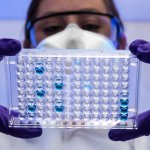
Juggling the cost of quality control (QC) resources versus the risk of testing error is a balancing act no clinical laboratory manager enjoys. It is an inexact process, itself prone to error, which can impact the operations of hospital labs and independent clinical testing companies. In the current resource-constrained healthcare environment, there is pressure to improve the cost effectiveness of…
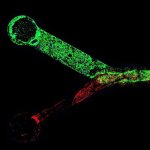
Chemotherapy can be toxic to heart cells. To help protect the hearts of cancer patients, Cedars-Sinai investigators have created a three-dimensional “heart-on-a-chip” to evaluate drug safety.
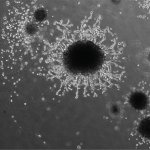
Using lab-grown ‘mini-placentas’, researchers from the UK and Switzerland hope to get new insights on dangerous pregnancy complications, such as pre-eclampsia.

A research team from Denmark has developed an innovative screening test. With a blood sample from the expectant mother, they can scrutinize all the genes in the fetus.
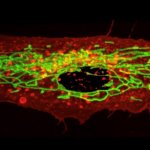
A new US study suggests a new way to personalize mental health care: They found compounds in the blood of people with depression and suicidal ideation that could be detected using a blood test.

To recognize and support pioneering efforts in life science laboratory settings, EMBO launches its Lab Sustainability Award. Applications can be submitted soon.
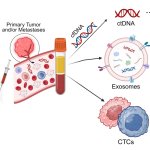
US researchers discuss three blood-based liquid biopsies, namely circulating tumor cells, circulating tumor DNA and tumor-derived exosomes, as they relate to prostate cancer management.
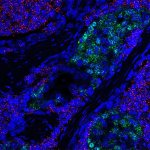
In a new study, UCLA researchers demonstrated how small cell neuroendocrine prostate cancer tumor cells can arise from less aggressive prostate tumors.
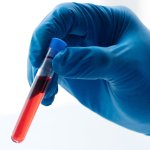
A high sensitivity blood test can improve diagnosis for one in five patients who have a heart muscle injury, according to new research.
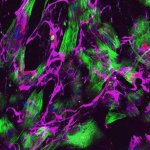
Using small blood vessels grown in the lab, researchers discover how vascular leaks leading to dementia and stroke emerge – and how this damage might be fixed.

Cedars-Sinai Medical Center, a non-profit hospital and medical research institution in Los Angeles, is setting new standards for quality and innovation in patient care by successfully introducing typing of Candida auris species – a procedure that could prove crucial in protecting patients from infection outbreaks caused by these microbes in healthcare settings.
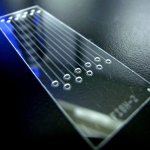
Faster, more accurate and cost-effective testing: Experts outline the beginnings and evolution of “lab-on-a-chip” technology, and its benefits for advanced and next-gen operational platforms.
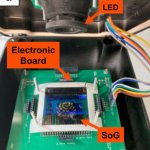
Over the last 20 years, the development of lab-on-a-chip (LoC) devices for performing real-time PCR (LoC-PCR) has been an active research field. Now, Italian researchers present their design for a new lab-on-a-chip-PCR device.
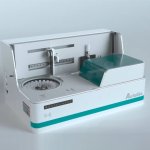
AutoLumo A1860/A1800 is the new generation of Autobio AutoLumo Series with compact structure and innovative design, providing simpler, smarter and better user experience for small and medium size labs.

The field of lab-on-a-chip needs to meet important challenges around sustainability. This includes not only the development of smart analytical systems that are able to sense the changes that are occurring within the environment but also, more generally, the mitigation of single-use plastics in analysis and the use of low-power, recyclable microsystem technologies.
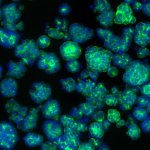
University of Basel scientists have discovered that high levels of the amino acid arginine drive metabolic reprogramming to promote tumor growth. This could lead to improved liver cancer treatment.

New research from Copenhagen University Hospital – Rigshospitalet and Herlev and Gentofte Hospital has shed new light on the immune system’s complex struggle against the coronavirus.
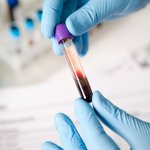
Could a single biomarker detect all types of diseases related to dopamine deficiency in the brain? According to a Swedish research group, such a marker may have just been found.

New methods to predict outcomes for pregnancies where there are issues with poor growth of the baby inside the womb have been developed by a team of scientists.

From cancer to AI, from management to new medication: this year's Labmed Forum at MEDICA 2023 in Düsseldorf (November 13-16) once again features an exciting scientific programme.

The 2023 AACC meeting saw two exciting AI applications in lab medicine: a predictive algorithm for MS, and machine learning for detecting contaminated lab samples.
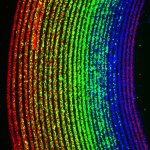
New technology that creates ultra-thin layers of human cells in tube-like structures could spur development of lifelike blood vessels and intestines in the lab.
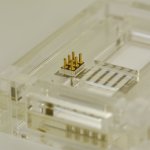
A new device that combines microfluidics on paper, electrochemical transduction and immunoassays on magnetic nanoparticles is useful for easy and rapid diagnosis of lung diseases.

Women with a history of endometriosis had higher concentrations of cadmium in their urine compared to those without that diagnosis, a new study finds, linking the toxic metal to the condition.